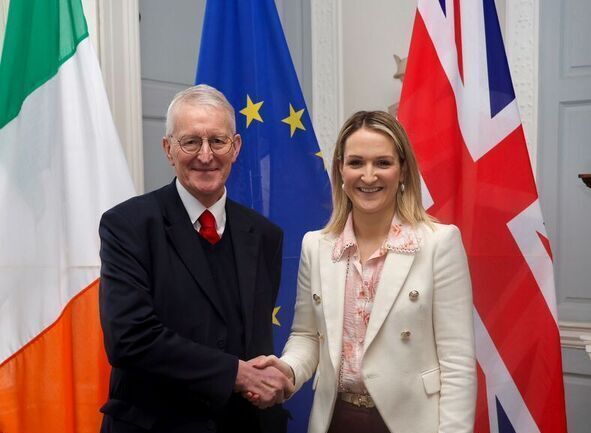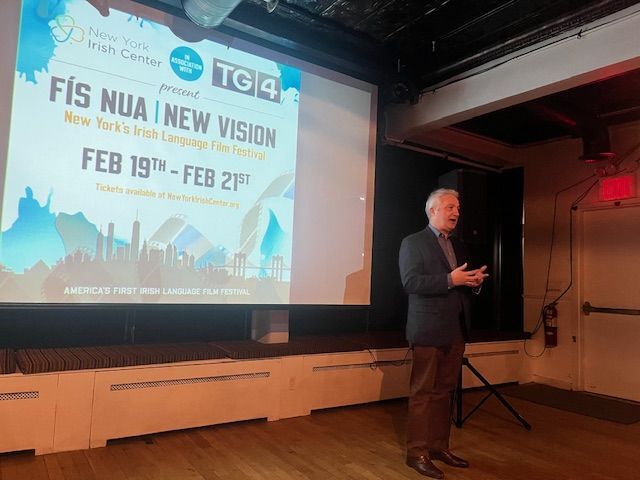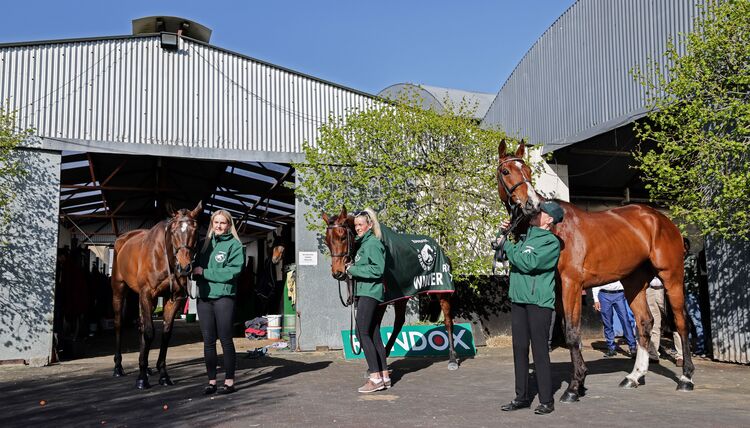The headlines from Europe may be dour at the moment but one woman has a positive outlook on Ireland. That's Susan Hayes, self-described as "the positive economist," who was in New York last week to talk about Ireland's economic fate.
"It's not all bad. It's not all bad at all," the Cork woman told members of the Irish International Business Network gathered at the Irish Consulate on Park Avenue last Tuesday, although she admitted that the country has some "really, really serious problems."
Hayes offered a whistle stop tour of the sources of Ireland's economic crisis, noting that in the five years between 2003 and 2008, banks lent half a trillion euros to Irish residents.
"We should really learn not to let our banking system grow larger than the economy," Hayes observed.
As Ireland continued to thrive during the boom years, a strange phenomenon was apparent. When people had large disposable incomes, they tended to save very little. The more money they had the more they borrowed, calculating what they thought they should take on loan from banks based on their rosy projected incomes. (The opposite is happening now, with nerves about finances spurring saving).
Wearing a dapper suit and speaking with gusto, Hayes recalled how she had been in college during the boom when students were told by professors that they were the lucky ones who would have their pick of lucrative jobs - only to graduate into a desiccated market a few years later.
Hayes studied financial math and economics at NUI Galway and now runs a financial training and education company called Hayes Culleton. She acquired the title of the "positive economist" after doing some commentary on radio and subsequently with a regular slot on 4FM.
"My slot was at 7.30 am, which meant I would get up before 6.30, then hop on my bike and cycle to the radio station headquarters. I am naturally a happy and positive person, and people at the radio would comment that I was always smiling, no matter how early I had to get up or how horrible the weather was on my ride," she explains on her website.
The radio announcers began to introduce her as "the happy economist" - and the nickname stuck.
The biggest stumbling block to economic recovery in Ireland - and one as yet unresolved, according to Hayes - is the number of people struggling with underwater mortgages.
Hayes described one woman who had come to her for advice, a teacher, who was a single mother with a teenage daughter.
Having taken on five mortgages during the boom, the woman had moved back in with her parents as she tried to repay them. These are the sorts of situations where people fall behind in payments, Hayes noted.
Currently, 39,000 mortgages are less than 90 days in arrears, and 20,000 mortgages have been in arrears for more than 720 days, or two years.
While the banks have been recapitalized, individuals have not received help, which is causing a lot of mental anguish.
Hayes suggested that the loans be restructured and extended - from twenty to thirty years, for instance - in order to give home-owners some breathing space. In other cases, banks could reclaim properties but allow former owners to continue to live there, paying rent.
Individuals who are unemployed and unable to repay their mortgages are suffering a lot of stress. Hayes pointed out that with such financial pressures being imposed upon them they are unlikely to contribute to the economy through spending, further hampering growth.
The government must face up to the problem before it is too late, she said.
"We are not dealing with it, we continue not to deal with it," she explained.
"We're just pretending that it will go away, but it's continuing to get worse."
In other respects, however, Hayes saw reason for hope. Ireland's unemployment rate has stabilized at roughly 14.6 percent - "we're not comfortable with that, but we have stabilized" - and the presence in Ireland of technology giants like LinkedIn, Facebook, Google and Paypal, is enabling that sector to flourish.
Meanwhile, exports are doing well, helped by the Eurozone's ongoing troubles, which have weakened the currency's value.
The crisis has forced the government to bring in policy changes that will make things easier for business. The stringent bankruptcy law has been relaxed so that when people declare themselves bankrupt they keep that status for just three years - not 12, as before.
And there is plenty of entrepreneurial spirit in evidence fostered by government actions.
"I think the recession has done Ireland a lot of good in many respects and one of them is that government policy became far more pro-entrepreneurial," Hayes said.
Hayes, whose books include "The Savvy Woman's Guide to Financial Freedom," suggested that, "If Lehman Brothers were called Lehman Sisters it [the global financial crisis] would never have happened" - this to laughter from the audience - or at least the women who were present.
Her bottom line prediction for the Irish economy was unsurprisingly an upbeat one, though still guarded.
"I do think if we were to face up to the mortgage arrears crisis (and we really have to because it's a ticking time bomb), if we can get banks lending again, and then if we can generate employment, which will go on to generate confidence - we will be fine."









